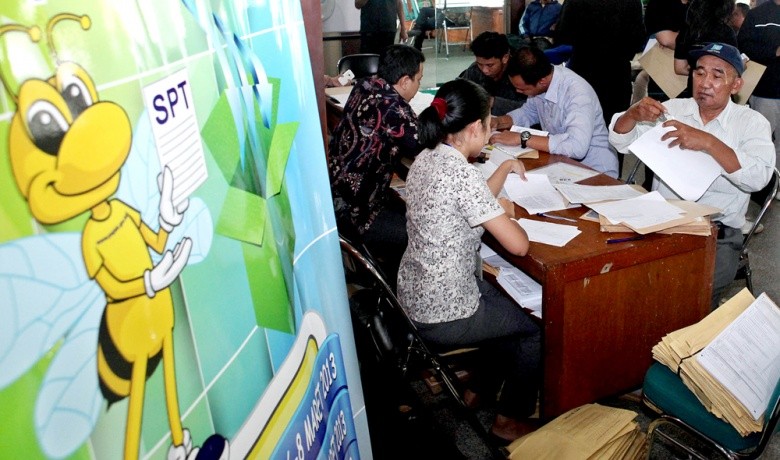Popular Reads
Top Results
Can't find what you're looking for?
View all search resultsPopular Reads
Top Results
Can't find what you're looking for?
View all search resultsBreaking curse of Indonesia's tax revenue shortfall
Another year, another attempt, another failure in collecting tax. Despite numerous tweaks and improvements over the last two decades, Indonesia’s tax administration has failed to generate a sustainable and meaningful increase in tax revenue over and above the pre-2000 levels.
Change text size
Gift Premium Articles
to Anyone
Another year, another attempt, another failure in collecting tax.
Despite numerous tweaks and improvements over the last two decades, Indonesia’s tax administration has failed to generate a sustainable and meaningful increase in tax revenue over and above the pre-2000 levels.
From conventional strategies — restructuring the organization, modernizing IT systems, developing data infrastructure — to high and risky moves like lowering tax rates, granting tax amnesties and offering tax incentives, all have been tried in the past 20 years. Yet, our tax administration is still performing poorly, is still a constant source of late-year anxiety for the government and is still a specter hanging over our economy.
So what is wrong in our tax administration?
Almost universally, the answer is low compliance. Compliance improvement has been the perpetual goal of the Indonesian government. It is at the heart of the International Monetary Fund-backed medium-term revenue strategy proposal of 2018, and the Organization for Economic Cooperation and Development (OECD) in 2018 called it “the key to durably raising revenue”.
What, then, should be done to improve compliance? A self-assessment regime like ours, where taxpayers pay the taxes they declare according to their own calculation, requires the tax administrator’s constant vigilance to ensure compliance.
Limited access to data, especially financial information, was blamed in the past as the main culprit of the inability of the Finance Ministry’s Directorate General of Taxation (DGT) in monitoring compliance closely. With the 2016-2017 tax amnesty and the enactment of the 2017 law on access to financial information, however, the tax authority has much wider access to third-party data, and it has even established a dedicated data and analysis unit. The DGT now has ample intelligence to monitor compliance.


















